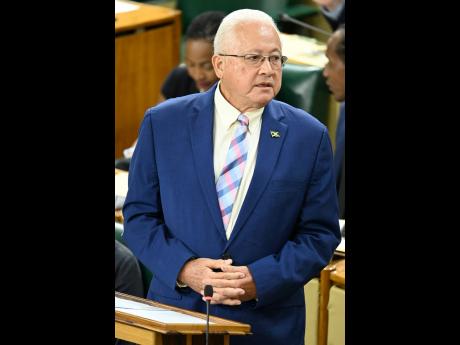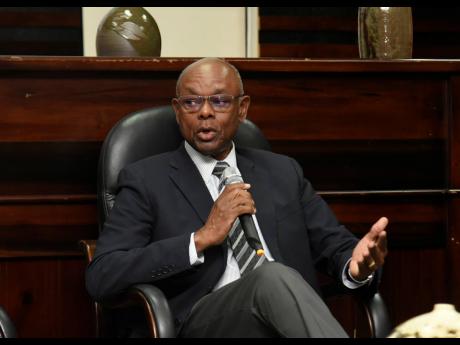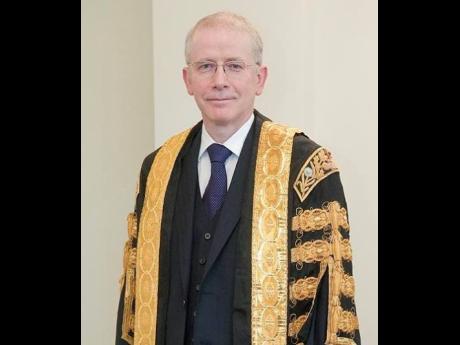JCPC to introduce ‘review of merits appeal’ rule
The Judicial Committee of the Privy Council (JCPC), Jamaica’s apex court, is set to introduce a ‘review of merits appeal’ rule, a major development that will effectively reduce the number of cases brought by appellants from jurisdictions it serves.
The rule forms part of a slew of changes proposed by the United Kingdom-based court that are to take effect later this year in October.
The Privy Council has embarked on a month-long consultation process on a revision of its rules with stakeholders from across jurisdictions it serves. This is set to end on May 17.
The proposed new rule, which was tested late last year, received strong objections, forcing the Lord Robert Reed-led JCPC to consult.
Under rule 22, only a single member of the judicial committee will review the appeal of an appellant where permission has been granted by the court below or where the appellant has a right of appeal under the constitution of the jurisdiction from where the appeal comes.
If the single member conducting the review believes that the appeal “is not devoid of merit”, a direction will be given for the appeal to proceed in the same way as if permission had been granted by the JCPC.
However, if the single member reviewing the appeal believes that it is without merit, the appellant will be invited to file submissions to show that the appeal has merit.
The submissions will then be considered without a hearing by a panel of three members of the JCPC.
If the members of the panel determine that the appeal is devoid of merit, they can dismiss the appeal summarily.
Conversely, if the appeal is not devoid of merit, the panel will direct that it continues, though they may direct that the full hearing should be before a panel of three rather than five members of the JCPC.
“This procedure was introduced to ensure that respondents are not required to spend time and costs on responding to such appeals and on preparing for hearings at which submissions on the substantive issues raised in the notice of appeal are not in the event required,” the 58-page document detailing the proposal of new rules outlines.
Respondents will be informed by the registry when the notice of appeal is issued that a review of the merits will be conducted, it said.
“Major change”
Senior constitutional lawyer, Michael Hylton K C, described the proposed rule as a “major change” in how the Privy Council operates.
Hylton said, within the Jamaican Constitution and that of other jurisdictions which accede to the Privy Council, there are two types of appeals – as of right and cases of certain monetary value or where they are of exceptional public importance.
As of right matters are automatic and are heard by five judges. Hylton stressed that, under the new rule, a single judge could cancel that right.
“… That’s what our constitution says and, if you’re going to be our final court following our constitution and our constitution says I have a right to come with my appeal, you could certainly be taking that away, and I think it is fundamentally wrong,” he argued.
“But they are our final court, so we have to take. It is not as if we can appeal against it or overrule them. Once they are our final court, whatever they do, you have to accept, which I think is a further reason to leave,” he told The Gleaner.
But Justice Minister Delroy Chuck said the move by the Privy Council is to ensure that only cases that have merit are adjudicated.
He pointed to Jamaica’s Court of Appeal, noting that a single judge may assess a case and “frequently” dismiss them at first instance. The appellant, however, has the option to further appeal to a panel of three judges, he said.
“What the Privy Council is doing is essentially what most courts of appeal do, and that is to have a single judge do an assessment. That single judge will see no merit and therefore indicate that to the applicant … .
“The Supreme Court of the United States allows less than five per cent, probably less than one per cent, of the cases that come there to be adjudicated. In other words, one or few judges will examine the case and decide that they shouldn’t proceed,” he told The Gleaner.
He said the process of eliminating unmeritorious cases is one done by all courts.
Further, Chuck said, while there is the aspect of a right of appeal, this does not mean it must be fully adjudicated.
Meanwhile, the Privy Council announced yesterday that the British government has approved a proposal by Lord Reed for overseas judges to sit on the court.
The court and the UK’s Ministry of Justice are now working on detailed arrangements to welcome judges from countries served by the Privy Council, subject to the king’s approval, the court said.
“Having the benefit of the opinion of a judge with direct experience of local conditions can only enhance the quality of the Privy Council’s decision-making,” Lord Reed said.



